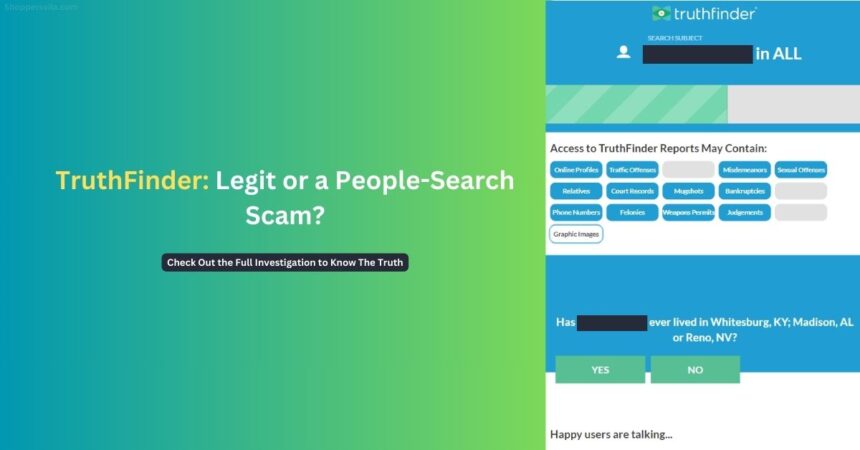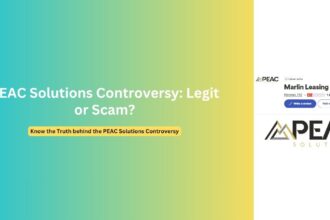In a crackdown on major background report providers, the Federal Trade Commission (FTC) has filed a complaint against TruthFinder on September 11, 2023, alleging deceptive marketing practices and violations of federal consumer protection laws. The agency’s action has reignited scrutiny over the legitimacy and transparency of online people-search services.
Overview of FTC’s Allegations on TruthFinder’s Background Report
1. Accuracy Claims Under Fire
The FTC’s complaint takes aim at TruthFinder’s claims of providing “the MOST ACCURATE information available to the public.” According to the agency, these assertions were misleading, as the company’s background reports relied solely on data from third-party sources that expressly disclaimed the accuracy of their information.
2. Misleading Consumers on Disputes and Removals
The FTC also alleges that the website misled consumers with “Remove” and “Flag as Inaccurate” buttons that did not function as advertised. While users expected these features to address inaccuracies, the FTC claims that the website took no steps to investigate or modify disputed information, leaving potential errors unresolved.
3. Fair Credit Reporting Act Violations
Despite website disclaimers, the FTC contends that TruthFinder operated as a consumer reporting agency (CRA) by marketing its background reports for employment and tenant screening purposes. As a CRA, the company was required to comply with the Fair Credit Reporting Act (FCRA), which mandates stringent accuracy standards and consumer protections.
The FTC alleges that Truth Finder violated the FCRA by failing to ensure the maximum possible accuracy of its reports, providing reports to individuals without permissible purposes, and neglecting to properly investigate consumer disputes over inaccuracies.
4. Incentivizing Positive Reviews
The complaint also accuses the website of attempting to bolster its online reputation by offering free premium reports to customers in exchange for posting positive reviews on HighYa, a review site. However, the FTC claims the company failed to require these reviewers to disclose their compensated connections, potentially misleading other consumers.
Consumer Complaints and Reviews Revealed the Truth
TruthFinder’s legal troubles mirror numerous consumer complaints and negative reviews documented by the Better Business Bureau (BBB) and other watchdog organizations. Over the past three years, the BBB has closed 401 complaints against them, with 171 in the last 12 months alone.
Common grievances include inaccurate or incomplete information in reports, unexpected recurring charges after signing up, difficulty canceling subscriptions, and deceptive marketing tactics. Many customers have expressed frustration over paying for reports that failed to provide valuable or up-to-date information beyond what was already publicly available.
“I paid $30 for a report, and the information was no better than what I could find through a basic Google search,” lamented Liz M. in a scathing BBB review. “TruthFinder is nothing but a scam.”
Is TruthFinder Legitimate or a People-Search Scam?
While the FTC’s allegations and consumer complaints raise serious concerns, TruthFinder maintains its legitimacy as a public records aggregator. The company frequently responds to complaints by acknowledging the limitations of relying on third-party data sources, which can contain inaccuracies or omissions.
The website also asserts that customers must authorize recurring subscription charges during the sign-up process, and that its service cannot legally be used for employment screening due to FCRA requirements – a point emphasized by the FTC’s complaint.
How their System Actually Works?
The People Search Company’s platform compiles and organizes publicly available information from various sources, including county courthouses, census bureaus, and other public records databases. This data is then packaged into comprehensive background reports that users can access through a paid subscription service.
The depth and accuracy of these reports, however, have been called into question by the FTC and dissatisfied customers. TruthFinder acknowledges that its reports may contain incomplete or outdated information due to the nature of its data sources.
Proposed Settlement and Compliance Measures
Under the proposed settlement, Truth Finder and its affiliated companies must pay $5.8 million in penalties. Additionally, the order requires the implementation of a comprehensive monitoring program to ensure FCRA compliance when operating as a CRA.
The settlement also prohibits the website from misrepresenting the accuracy of its reports and mandates proper disclosure of material connections between the company and endorsers providing reviews or testimonials.
Moving Forward: Transparency and Compliance
As the FTC’s case progresses, TruthFinder and other online people-search services face increasing pressure to address concerns over transparency, accuracy, and compliance with consumer protection laws.
While these services can provide valuable insights for personal use, their limitations and the potential for misuse or misrepresentation must be carefully considered. Stricter oversight and enforcement actions may be necessary to ensure that consumers are not deceived or taken advantage of by companies operating in this industry.
This case serves as a reminder of the importance of thorough research, skepticism, and due diligence when relying on background report services. As with any information source, critical evaluation and cross-verification are essential to separate fact from fiction.


























